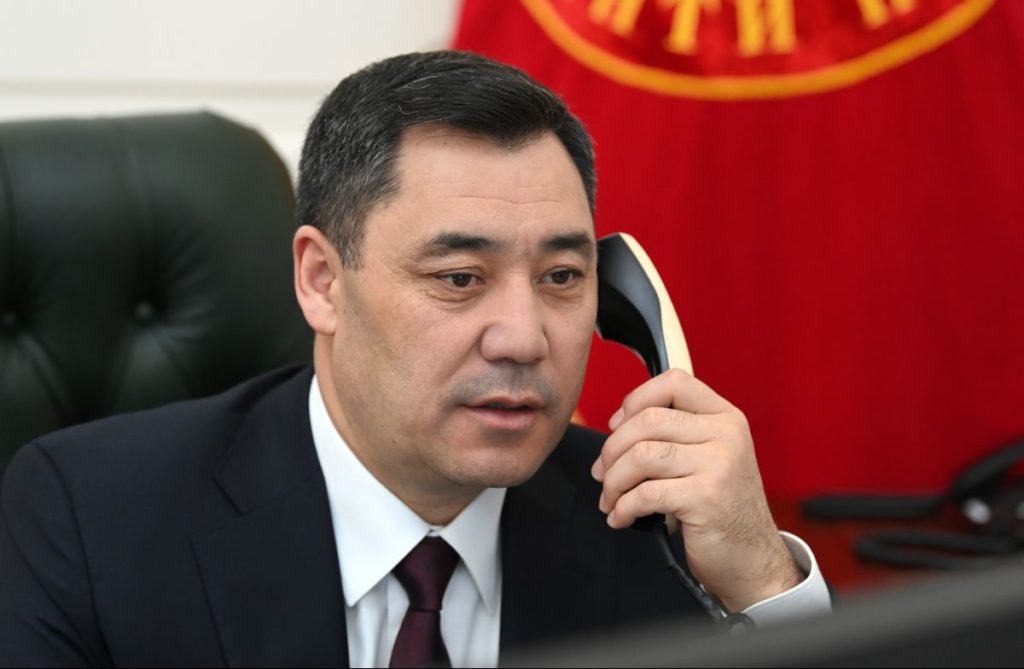The President’s Decree on stock market development, issued on November 17, 2022, encompasses a broad range of ideas and measures aimed at stimulating the investment infrastructure of Kyrgyzstan. We have categorized the provisions of the Decree into several groups and attempted to determine how they can be implemented in the near future.
Strengthening the institutional infrastructure
The Decree grants CJSC «Kyrgyz Stock Exchange» and CJSC «Central Depository» the status of key national institutions. Although the term «key national institution» is not explicitly defined in legislation, this provision effectively elevates the status of these organizations, primarily in the eyes of foreign clients and contractors. Indirectly, bestowing such a status implies (though does not legally guarantee) that in the event of financial difficulties, the state will somehow support these institutions to prevent their problems from affecting users» interests. This is most relevant for the Central Depository: while the Kyrgyz Stock Exchange does not hold customer funds in its accounts (apart from settlements in the commodity section), both cash and securities of all exchange trading participants, as well as a number of private depositors, are held.
The Decree mandates the «completion of the state’s entry into the capital» of the Kyrgyz Stock Exchange (KSE) and the Central Depository (CD). Currently, the State Property Fund under the Ministry of Economic Commerce is already a shareholder of the KSE – it is likely that the plan is to increase its stake while simultaneously injecting additional budgetary funds into the exchange’s capital. This will require the consent of the majority of the remaining shareholders, which include stock exchange institutions like the Istanbul and Kazakhstan stock exchanges, as well as numerous private brokerage firms. Given the KSE’s constant need for development funds, such consent will likely be obtained, despite the dilution of other shareholders» stakes.
The state’s entry into the capital of the CD will also necessitate the consent of its shareholders, which currently include more than a dozen professional stock market participants with relatively small stakes. The injection of budgetary funds into the CD’s capital should, in theory, assist it in achieving the Decree’s goal for the CD to become «modern and aligned with international standards.»
Expanding the range of financial instruments
This is perhaps the most crucial provision of the Decree. All stock market participants in our country concur that one of the main reasons for its low liquidity and actual stagnation is the lack of a diverse array of attractive investment instruments available to local and foreign investors. As it stands, the KSE actively trades only stocks and bonds, along with standard lots of real commodities from time to time.
The President’s Decree outlines the addition of several groups of financial assets to the range of instruments traded on the KSE. Firstly, it mandates the transfer of government securities trading to the KSE, which is expected to widen the pool of bidders and investors. Overall, this is a positive development for the KSE (increased turnover, commissions, and support for the exchange’s budget); however, the activity of transactions involving government securities will primarily depend on their appeal to investors.
Incidentally, it would be advantageous if the Government decides to pilot a domestic issuance of foreign currency bonds, even if for a small sum, as it would attract foreign funds to the government debt market and also pave the way for issuing full-fledged Eurobonds (which would reduce budget dependence on Chinese targeted loans with imposed contractors and introduce the Kyrgyz Republic to global capital markets).
Furthermore, the Decree mentions plans to conduct initial public offerings (IPOs) of national companies with state participation on the KSE platform, so that at least 5% of the capital of such companies is openly available for sale. These shares are expected to be accessible to the public, institutional, and foreign investors.
To implement this provision, it is essential to (1) corporatize unincorporated state enterprises, (2) commission a reputable appraiser to determine the initial price at which their shares can be listed on the exchange, and (3) conduct a roadshow for domestic and foreign investors, during which, among other things, efforts should be made to persuade them that the companies listed on the stock exchange will adhere to high standards of corporate governance, respect minority shareholders» rights, avoid «friendly» transactions at unfavorable prices, and so on. In our estimation, the implementation of such plans may well extend into 2024, given the substantial workload and ensuing formalities.
Another provision of the Decree suggests examining the issuance and placement of financial instruments on the stock market to fund national and development projects. This concept has not been thoroughly explored, as it remains unclear which «national projects» and «development projects» can be corporatized. Most likely, this definition may first and foremost encompass the construction of the China-Uzbekistan railway, which, although likely to be financed by the Chinese side, will require an operator from the Kyrgyz side.
The Decree repeatedly emphasizes the need to expand the array of financial instruments traded on the stock market. Currently, the long-overdue listing of at least the following investment assets on the stock exchange is needed: Islamic securities, precious metals, derivative contracts for precious metals, and derivative contracts for other standard commodities (petroleum products, coal, building materials, etc.). It should be noted that the KSE rules have already regulated in detail both the listing of Islamic securities and transactions with commodity instruments – it remains to ensure their listing on the stock exchange. This responsibility primarily falls on Kyrgyz investment companies.
Simplifying the entry of companies into the stock market
One of the Decree’s directives calls for «creating a favorable regulatory framework to simplify the procedure for businesses to enter the stock market» and establishing «conditions for a simplified entry into the stock market for promising start-up projects.»
These instructions from the state highlight a real issue. The listing rules and procedures for joining the KSE are quite complex for companies opening their securities for exchange trading for the first time. High requirements for auditors, threshold amounts of capital, profitability, corporate documentation standards, and passing the discussion at the Listing Committee are all standards that would be appropriate for a developed global financial center but seem excessive for the stock market of an emerging market. It is hoped that, in response to the Presidential Decree’s order, the KSE’s governing bodies will swiftly adjust the relevant rules so that small, growing companies can utilize stock exchange listing, not just «corporate giants» with hundreds of millions of soms in revenue.
Integration into the global financial market
An undeniably significant provision of the Decree, aimed at guiding the development of the Kyrgyz stock market for years to come, is the «integration of the country’s stock market with international capital markets.»
How can this be achieved?
First, it should be considered that transactions involving securities of foreign issuers not admitted to public circulation within the country can be conducted on Kyrgyz stock exchanges. Consequently, residents, except for qualified investors, will be prohibited from purchasing them. This will partially attract regional investors to Kyrgyzstan for the immense secondary trading volume in such securities, which used to take place on two Russian exchanges – the Moscow and St. Petersburg stock exchanges – and after the imposition of sanctions, shifted to the Kazakh MFC Astana.
Secondly, it is vital to ensure the connection of CJSC Central Securities Depository to one of the international central depositories (Euroclear / Clearstream / SIX-SIS / DTCC) as soon as possible, either directly (which will be challenging) or at least through a properly functioning central depository of foreign states. Regrettably, the current CSD gateway to Euroclear and Clearstream, implemented through the Central Securities Depository of the Republic of Kazakhstan, is malfunctioning due to the unpreparedness of the Kazakh depository for the additional volume of securities that unexpectedly fell upon it in 2022.
Creation of favourable conditions for investments
Sadyr Japarov, through his Decree, has ordered «to develop a draft of individual investment accounts aimed at stimulating the process of investing the population in the development of the country’s economy.» This is a very timely measure: the introduction of individual investment accounts (IIAs) in Russia since January 1, 2015, has significantly increased the amount of household funds invested in stock market instruments. By the beginning of 2022, approximately 5 million IIAs were opened in Russia, and the amount of funds in them exceeded 400 billion rubles (after Russia initiated hostilities in Ukraine, this volume decreased by about 7%).
The main secret behind the success of IIAs in Russia is that their implementation was based on providing investors with a complete exemption from income tax on transactions through IIAs. In our country, the Tax Code currently offers benefits only for transactions with bonds listed in categories A and B and exempts residents of the Kyrgyz Republic from tax on dividends received. Clearly, for the successful implementation of IIAs, full tax exemption for operations on them will be necessary; otherwise, there will be no difference from working through a regular brokerage account (of which very few are currently open).
In general, Decree No. 376 can be considered a breakthrough for the Kyrgyz stock market. Its participants unanimously agree that it is high time to revive the market – with the right approach, its development can become a driving force for the accelerated growth of the country’s economy as a whole.





